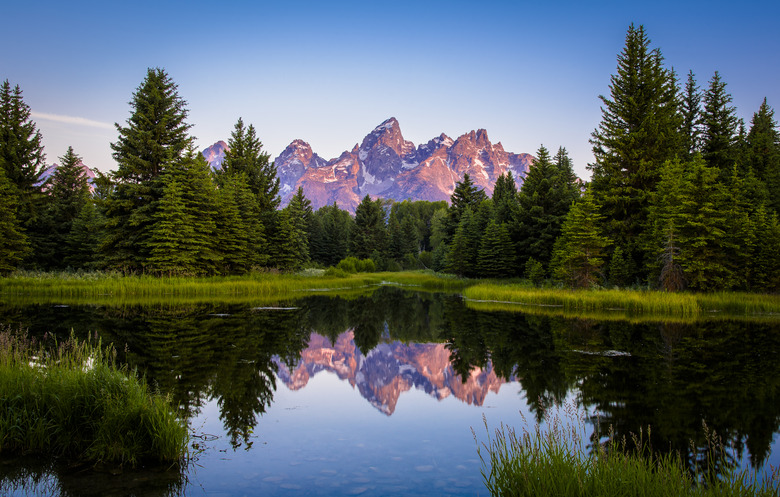Advantages And Disadvantages Of Natural Environments
Henry David Thoreau, in his 1862 essay, "Walking," wrote: "In wildness is the preservation of the world." He recognized many of the wonderful practical and spiritual gifts people obtain from the natural environments that surround them. However, nature can also be harsh and dangerous. It provides both advantages and disadvantages to the human population in its midst. The natural world provides important services, from fresh water and lumber to the removal of pollutants. It also is, quite simply, spectacularly beautiful at times. But nature can also be extremely destructive.
Economic Advantages
Economic Advantages
Natural environments provide wonderful services to human beings, some more obvious than others. Hilly dunes and barrier islands along the shore protect the inland population from powerful tides. Rivers and lakes provide drinking water, as does rainfall that replenishes surface and underground water supplies. Marshes and wetlands filter many pollutants that would otherwise contribute to widespread contamination. Nitrogen-fixing bacteria help crops grow. Plants are continual sources of new medicines. The seas provide abundant fish to feed a growing population. Researchers have estimated that natural ecosystems across the globe provide more than $40 trillion a year in worldwide services.
Recreation, Insight and Splendor
Recreation, Insight and Splendor
Who hasn't gaped in awe at a magnificent sunset or a majestic mountain vista? The natural world provides people with places to play and explore, along with opportunities to examine how nature works its many wonders. Writers from the ancient philosophers to the most modern essayists and poets have remarked on the spiritual renewal that humans can find from something as simple as a walk in the woods. Almost all the world's countries have set aside natural areas as national parks, wilderness preserves and protected forestland and have taken other measures to keep natural systems intact and relatively undisturbed.
The Destructive Power of Nature
The Destructive Power of Nature
As wonderful as the natural world can be, it is not always benign. Storms, floods, earthquakes, volcanoes, tsunamis and other natural disasters periodically wreak widespread destruction. In the United States alone, natural disasters cost more than $300 billion in 2017, chiefly from a combination of hurricanes, tornadoes, drought and wildfires. The damage done worldwide runs into the trillions of dollars. Climate change scientists predict that changing weather patterns will make storms, floods and droughts even more severe in the long term, leading to the likelihood of even greater destruction.
Harboring Dangers
Harboring Dangers
Along with large-scale destruction, natural environments can pose many other types of dangers. A spiritually invigorating walk in the woods can also expose you to the possibility of a snake bite or an encounter with an angry bear. Illnesses like Lyme disease or Rocky Mountain Spotted Fever arise from the interaction of people with the natural environments in which they live, work or visit. The 2014 disease outbreak of the dreaded Ebola virus occurred when the virus jumped from its animal hosts in the wild to the human population in western Africa.
Cite This Article
MLA
Sarokin, David. "Advantages And Disadvantages Of Natural Environments" sciencing.com, https://www.sciencing.com/advantages-disadvantages-natural-environments-8577629/. 22 November 2019.
APA
Sarokin, David. (2019, November 22). Advantages And Disadvantages Of Natural Environments. sciencing.com. Retrieved from https://www.sciencing.com/advantages-disadvantages-natural-environments-8577629/
Chicago
Sarokin, David. Advantages And Disadvantages Of Natural Environments last modified August 30, 2022. https://www.sciencing.com/advantages-disadvantages-natural-environments-8577629/
